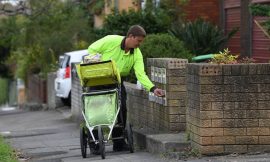Are you financially literate … and what does that even mean?
In 2023 the OECD conducted a survey among Irish adults that found 57% of them were financially literate.
The minimum requirement to be classed as such is being able to manage your money on a day-to-day basis with ease, and consider your long-term financial well being.
In comparison with other developed countries, Ireland is performing quite well in this regard, but it still means that more than four in ten adults here are not managing their money properly.
And the Government today launched the country’s first ever financial literacy strategy to address this.
The five-year plan will focus on people who are in the most vulnerable groups when it comes to money.
Minister for Finance Paschal Donohoe said we “clearly have a large minority of people in our country whom we need to find further support and help for”.
“The purpose of this strategy is to co-ordinate the good work under way, but take it a stage further and oversee it in a structured way.”
The evidence suggests that it is mainly women, older people, the unemployed, low earners with low levels of education, and those from minority groups who need most support.
The plan will involve a range of stakeholders, which would already be involved in improving money management.
We need your consent to load this comcast-player contentWe use comcast-player to manage extra content that can set cookies on your device and collect data about your activity. Please review their details and accept them to load the content.Manage Preferences
Outside of the Department of Finance – the Central Bank, the Competition and Consumer Protection Commission (CCPC), the Money Advice and Budgeting Service, and education and training boards are involved in the strategy.
People will be targeted in different ways by the plan.
Many schools already have money management as part of the curriculum, but under the new strategy this will be better co-ordinated and linked with advice sessions from some of the stakeholders.
There will be workshops in schools with students learning about financial resilience.
17-year-old Layla Gavigan was at the launch of the financial literacy strategy to share her experiences.
She said when she got her first part-time job “it was nice to see where my tax was going and how to claim it back”.
This was something she learned about in transition year, and she said the money management classes also helped when she was selling clothes online “as it was good to know how to set up PayPal and a credit card”.
Fellow student Isabelle Doyle said she learned about scams when selling online, which was especially useful because “it’s really common for our age group to resell their clothes online”.
Various public awareness campaigns will also be run, including by An Post and the CCPC.
All of this is being done with the aim of cutting through the financial jargon and helping people to be better with what money they have.




